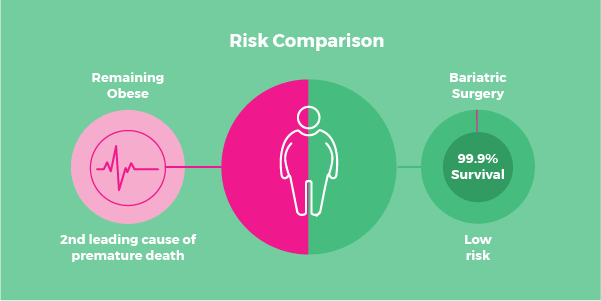Gastric bypass surgery has helped thousands of people around the world lose weight and improve their health. However, it is important to understand the possible side effects and risks before making a decision. In this article, we will explore the most common and serious complications related to this procedure.
What is Gastric Bypass Surgery?
Gastric bypass is a type of weight loss surgery that involves reducing the size of your stomach and rerouting your digestive system. This helps you eat less and absorb fewer calories.While many patients see positive results, there are also several gastric bypass side effects that you should be aware of.
Common Side Effects of Gastric Bypass
Here are the most frequent gastric bypass complications that patients may experience:1. Dumping Syndrome
One of the most common side effects is gastric bypass dumping syndrome. This happens when food moves too quickly from your stomach to your small intestine. It can cause nausea, vomiting, diarrhea, and dizziness.2. Nutrient Deficiencies
After surgery, your body may not absorb nutrients as well due to changes in the digestive process. Common gastric bypass nutrient deficiencies include:Vitamin B12 deficiency
Your stomach produces less intrinsic factor, which is needed to absorb vitamin B12. A deficiency can cause fatigue, numbness, and neurological issues.
Iron deficiency anemia
The bypassed intestine reduces iron absorption. This can lead to tiredness, pale skin, and dizziness.
Calcium deficiency
Calcium is mainly absorbed in the duodenum, which is bypassed during surgery. Long-term deficiency may result in weakened bones or osteoporosis.
Electrolyte imbalance
Loss of fluids and altered absorption may cause imbalances in potassium, magnesium, or sodium, potentially leading to muscle cramps, weakness, or heart irregularities.
These issues can lead to fatigue, bone weakness, and more serious health problems. To prevent these issues, patients must take prescribed supplements daily and follow a nutrition plan. Cayra Clinic offers personalized guidance, routine blood tests, and post-operative support to help patients maintain balanced nutrient levels.3. Hair Loss
Temporary gastric bypass hair loss is common due to sudden weight loss and poor nutrition. With proper supplements and a healthy diet, this can be managed.Serious Risks of Gastric Bypass Surgery
While many side effects are manageable, some risks of gastric bypass surgery can be life-threatening. These include:
1. Anastomotic Leak
An anastomotic leak is a rare but dangerous complication. It occurs when the connection between the stomach and intestine leaks digestive fluid into the abdomen.2. Bowel Obstruction and Hernias
Gastric bypass bowel obstruction and internal hernia may occur months or even years after surgery. These need immediate medical attention.3. Bleeding and Infections
Gastric bypass bleeding complications and infection risk are most likely during the first few weeks after surgery.4. Blood Clots
Gastric bypass blood clots, especially in the legs or lungs, can occur if you are not mobile soon after surgery.Long-Term Health Concerns
Many patients ask about gastric bypass long term risks. Some of these may develop slowly but can impact your quality of life.1. Low Blood Sugar
Some patients develop gastric bypass low blood sugar, also known as hypoglycemia. This may require dietary changes and medication.2. Psychological Effects
The rapid change in body image, lifestyle, and eating habits may lead to gastric bypass psychological effects such as anxiety, depression, or eating disorders.3. Alcohol Absorption
The surgery changes how alcohol is processed in the body. Gastric bypass alcohol absorption change can increase intoxication risk with small amounts.Rare but Possible Complications
While uncommon, some additional issues may arise after gastric bypass surgery:- Gastric bypass ulcers
Ulcers can develop at the site where the stomach connects to the intestine, especially in patients who smoke, take NSAIDs, or drink alcohol. Symptoms include burning stomach pain, nausea, and vomiting. These are treatable with medication and dietary changes.
- Gastric bypass dehydration
Because the stomach pouch is small and eating is restricted, many patients forget to drink enough water. Dehydration can cause dizziness, fatigue, or kidney issues. Patients must sip fluids throughout the day.
- Gastric bypass dysphagia (difficulty swallowing)
Scar tissue or narrowing at the surgical site may cause food to stick in the throat or chest. This may require an endoscopy or dilation procedure.
- Gastric bypass gallstones risk
Rapid weight loss can lead to gallstone formation. Some patients may need medication to prevent stones, or even gallbladder removal.
- Gastric bypass kidney stones risk
Lower fluid intake and altered calcium metabolism increase the risk of kidney stones. Proper hydration and supplements help prevent this.
Though these risks are rare, Cayra Clinic provides complete postoperative support and monitoring to minimize complications.Cost of Gastric Bypass Surgery in Turkey
| Item | Cost (€) |
|---|---|
| Surgeon’s Fee | 2,500 – 3,500 |
| Anaesthesia Fee | 300 – 500 |
| Hospital Stay (2–3 Days) | 500 – 700 |
| Medications & Aftercare | 300 – 500 |
| Consultation & Monitoring | 200 – 300 |
| Total Estimated Cost | €3,800 – €5,500 |
Why Choose Cayra Clinic for Gastric Bypass?
At Cayra Clinic, we focus on your safety, health, and comfort throughout the weight loss journey. Our board-certified surgeons specialize in gastric bypass procedures using the latest technologies. We provide detailed nutritional counseling and follow-up care to prevent and manage gastric bypass complications.To learn more about our clinic and approach to Side Effects and Risks of Gastric Bypass Treatment, visit our About Us page and for booking an appointment or specific details regarding our services, you can always contact us through the Contact Us page.Frequently Asked Questions
What are the most common side effects of gastric bypass?
Dumping syndrome, hair loss, and vitamin deficiencies.
Can I avoid nutrient deficiencies after surgery?
Yes, with proper supplements and diet.
Is dumping syndrome dangerous?
It’s uncomfortable but not life-threatening. It can be managed with diet.
How do I know if I have an anastomotic leak?
Symptoms include fever, stomach pain, and rapid heartbeat. Contact your doctor immediately.
Can I drink alcohol after gastric bypass?
It’s best to avoid it due to increased absorption and risk.
Will I lose my hair permanently?
No, it usually grows back within months.
Are psychological effects common?
Some patients experience mood changes. Support groups and therapy can help.
Can I get pregnant after gastric bypass?
Yes, but wait at least 12–18 months and consult your doctor.
What foods should I avoid?
Sugary, greasy, and high-fat foods may trigger dumping syndrome.
Is gastric bypass reversible?
Technically yes, but it’s complex and rarely done.
